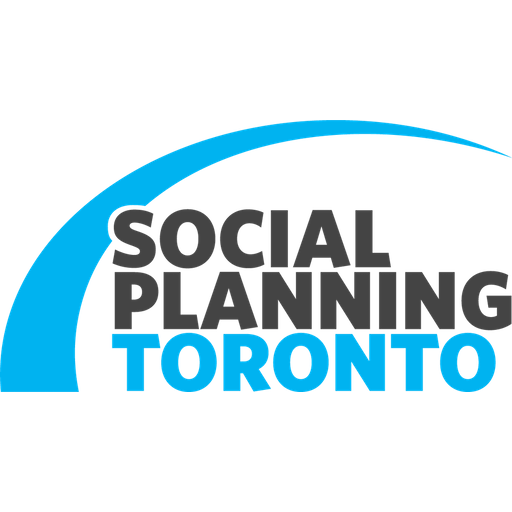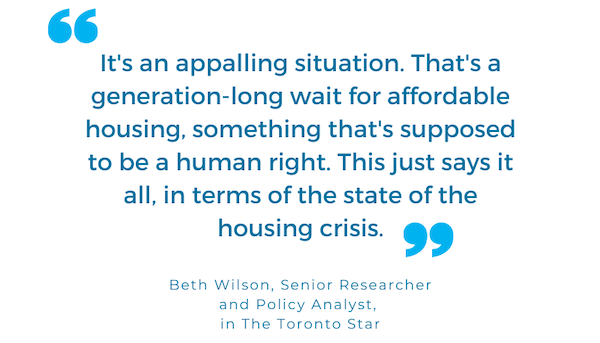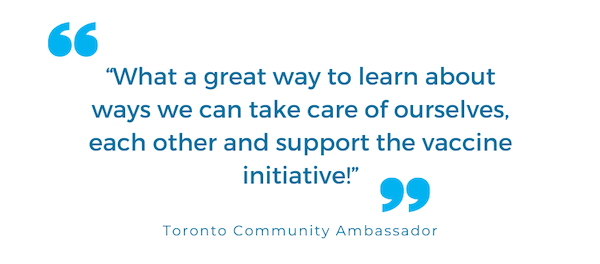Fortunately it was not all doom and gloom on the housing front.
In November, thanks to the collective efforts of residents, community groups, and supportive City Council members, Toronto became the first city in Ontario to implement inclusionary zoning (IZ).
Despite its boring name and its limitations, IZ has the potential, as our Opportunity Knocks research report showed, to create thousands of new affordable rental units in our city every year by requiring a percentage of most new residential high-rise developments be set aside for affordable housing.
Social Planning Toronto joined ACORN, Progress Toronto, Parkdale People's Economy, and advocates across the city to call for an IZ policy that required 20–30% affordable housing. Cities including New York, London, and Montreal already have IZ requirements ranging from 25–50% depending on neighbourhood.
But we were up against a powerful development lobby. Council adopted very low set aside rates: 5–10% for affordable rental and 7-10% for affordable ownership. The rates start rising in 2025, but even the fully phased-in rates, to be implemented in 2030 (8-16% affordable rental and 11-22% affordable ownership), are still much lower than the City’s own commissioned studies showed are feasible now.
Furthermore, without much higher percentage requirements on affordable ownership units, developers may prioritize creating affordable ownership units over affordable rental units. Under provincial law, developers can fulfill their IZ requirements by creating either affordable ownership or affordable rental housing. Over the past decade, for every 9 condo units completed, only 1 purpose-built rental unit was completed.
Although the policy as passed is weaker than community advocated for, it's a start, and it will be reviewed in a year. The final policy includes a deeper definition of affordable housing based on a percentage of the income of renter households and a requirement to maintain affordability for 99 years. And despite strong lobbying from the development industry, developers will not receive public funds to build this affordable housing.
The one-year review will provide an opportunity to organize and advocate for a stronger policy, i.e., one that has higher percentage requirements, prioritizes the creation of affordable rental housing, and expands IZ to other areas of the city. The Province restricted IZ to Protected Major Transit Station Areas (most subway, LRT, and GO stations) and the City further restricted it to areas where market conditions were sufficient to support IZ requirements. This leaves many low-income communities behind, including Little Jamaica, where a new LRT line promises to bring considerable new development.
The development lobby will no doubt redouble their efforts to weaken the policy to benefit financially from it. Amidst a decades-long housing crisis, we must fight for public policy that prioritizes people over developer profits.
Learn More:
More good housing news came out of our November 2020 report, Spaces and Places of Exclusion: Mapping Rental Housing Disparities for Toronto’s Racialized and Immigrant Communities, which detailed Toronto's significant problem of overcrowding in rental housing and its deep racial, social, and spatial inequities.
In January, York South–Weston MPP Faisal Hassan was motivated by our report to introduce Bill 252, Housing is a Human Right Act. If passed, this private Member's bill would have created mechanisms to hold the Province accountable to its 2018 commitment to recognize housing as a human right.
Unfortunately, Bill 252 was struck down at its second reading at Queen's Park.
In June, in response to a City Planning report called Right-Sizing Housing and Generational Turnover, we and our research partners Dr. Luann Good Gingrich (York University) and Dr. Naomi Lightman (University of Calgary) drew on the findings of the Spaces and Places of Exclusion report to call on the City to address the problem.
After our deputation at the June Planning and Housing Committee, Councillor Kristyn Wong-Tam moved a motion that was unanimously supported by the committee (and did not require a Council vote). Watch for a staff report in the first quarter of 2022 on existing policies and policy options to:
- address overcrowding in rental housing;
- create affordable rental housing stock of 3 bedrooms or more to accommodate larger families and households; and
- address underhousing in Indigenous and racialized individuals as well as women and single-parent led, immigrant and refugee households.
The staff report will also include a jurisdictional scan to understand how the issue is being addressed by other municipalities, including with equity-seeking populations, and data on instances of underhousing and overhousing in Indigenous and racialized individuals as well as women and single-parent led, immigrant and refugee households.
We’ll keep you up to date on this and other housing policy news, with details on how you can advocate for housing as a human right.
Learn More:














































